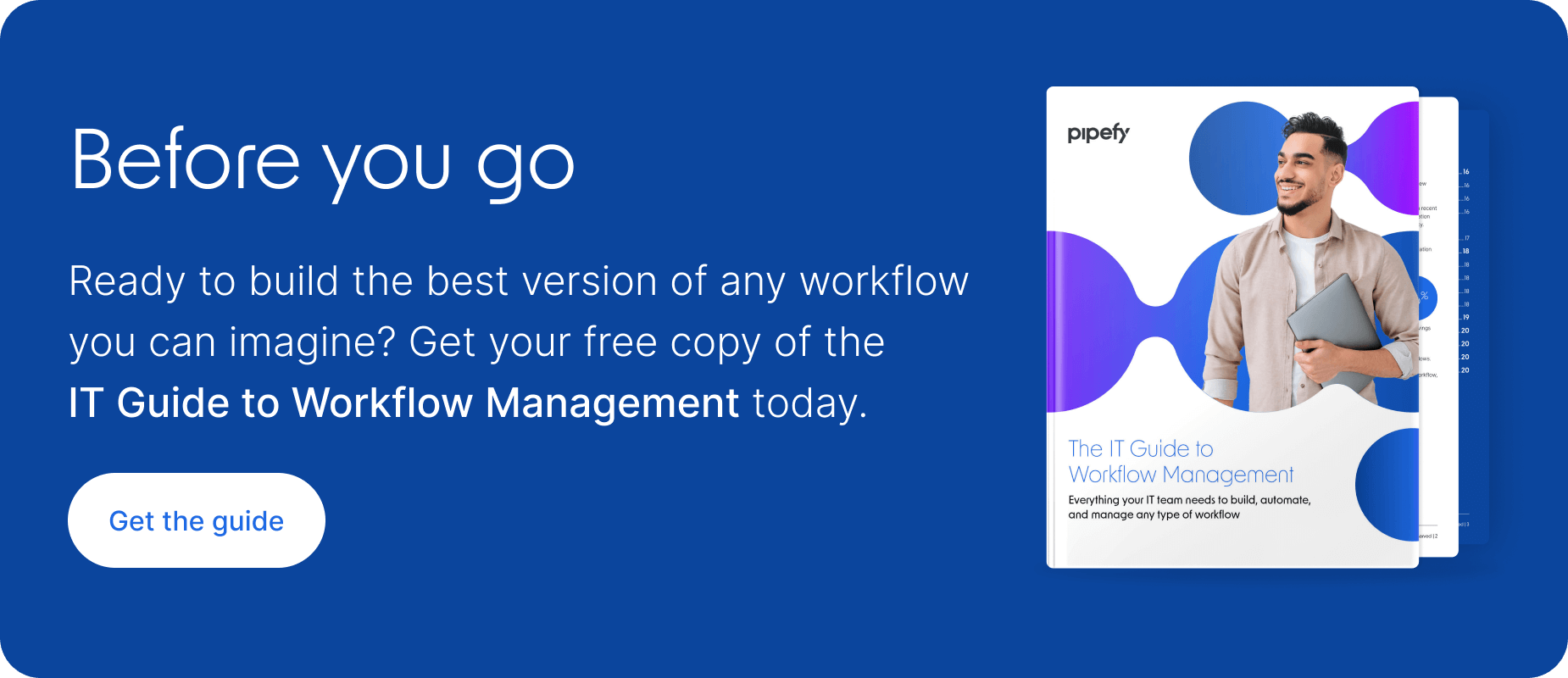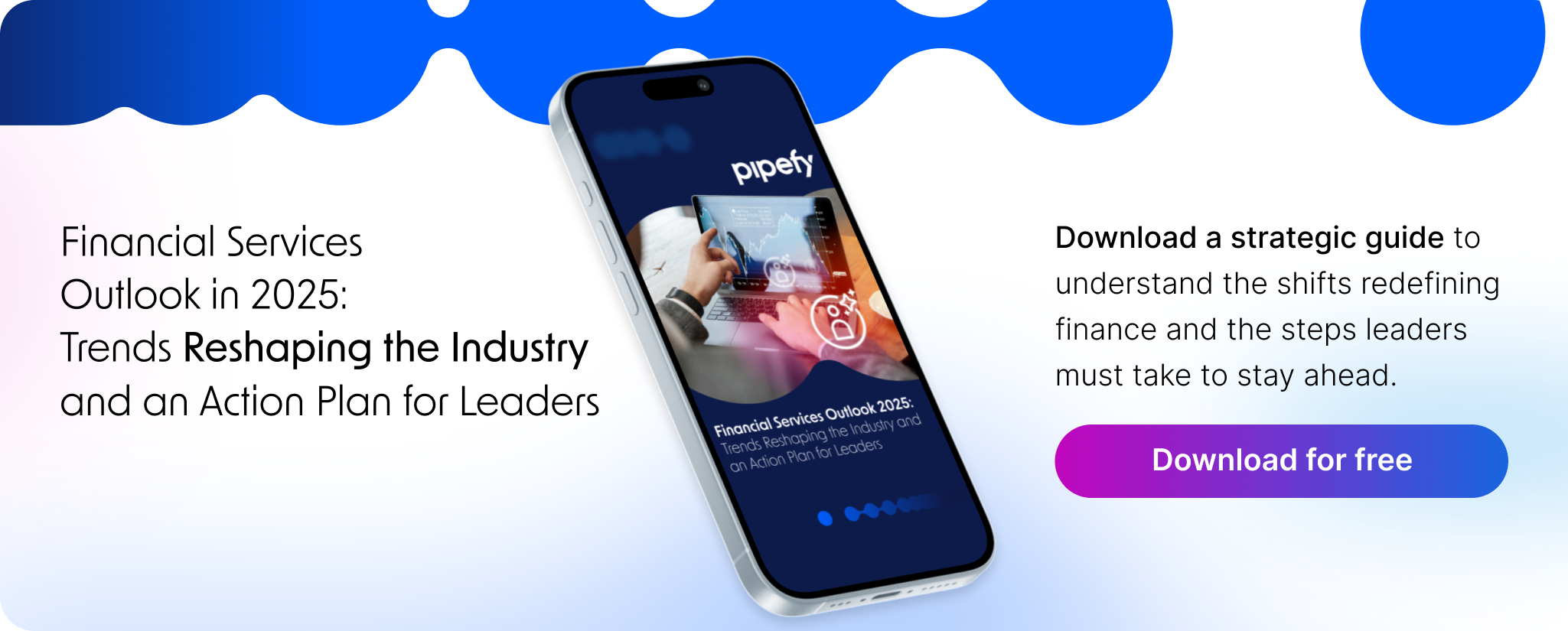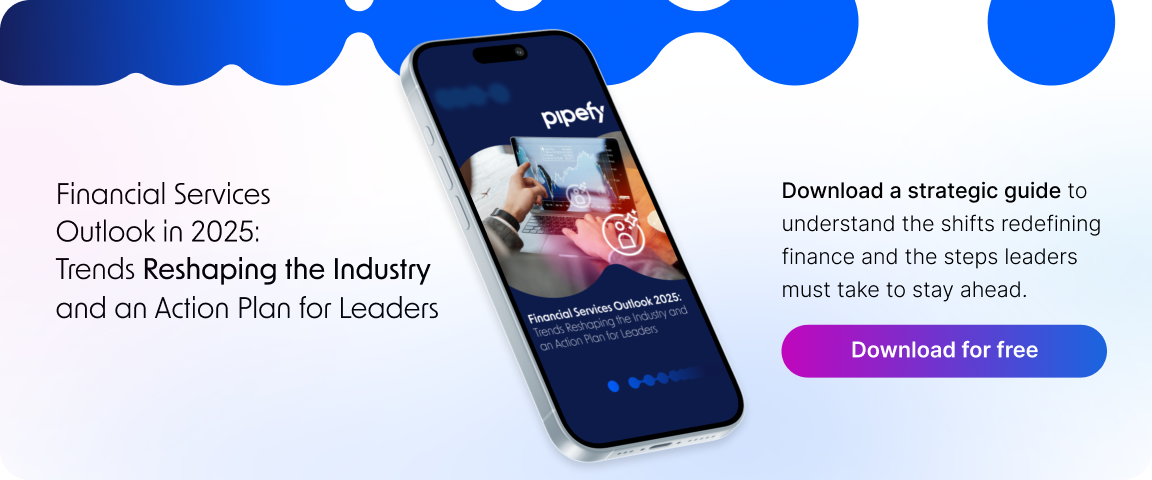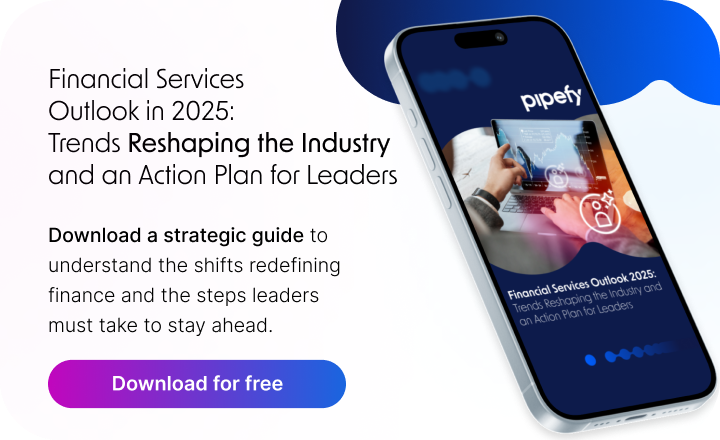
The right sales funnel software helps teams close deals and complements marketing efforts. But a sales funnel software that lacks key features or capabilities may actually dampen sales efforts and reduce conversions.
That’s why it’s important to choose software that is the right fit for your teams and that provides the most benefits for the business. In this post, we explore some of the factors any business should consider before choosing sales funnel software.
Definitive Guide to Workflow ManagementDownload now
What is a sales funnel?
A sales funnel maps a prospect’s journey from initial awareness of the product or service to the point at which the prospect makes a purchase. The sales funnel is divided into three phases:
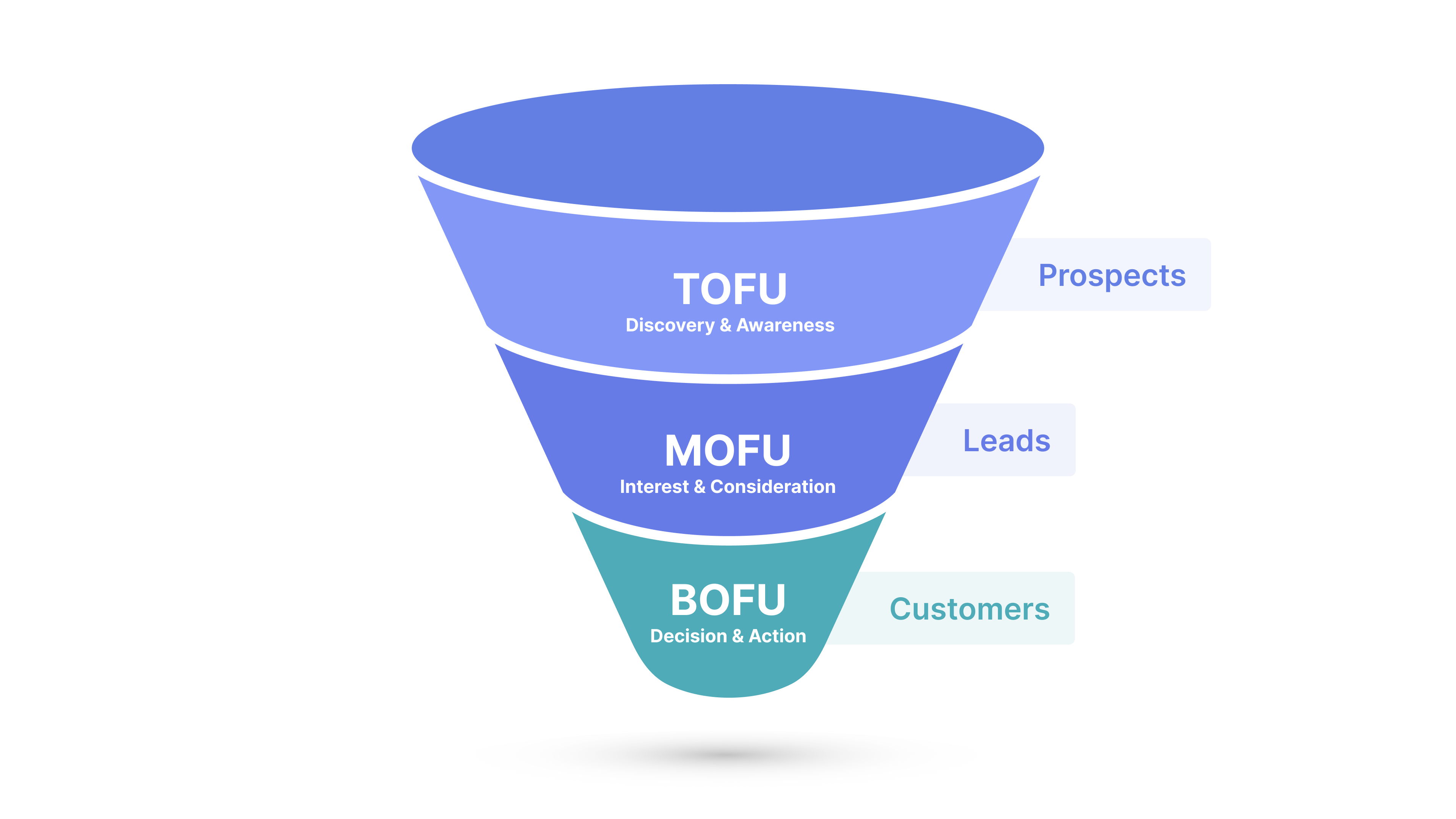
Top of funnel
The initial contact between your brand and the potential customer. At this point, the focus is on identifying prospects that can be classified as qualified leads or that are most likely to be a good fit for your product or service.
Middle of funnel
Once a prospect becomes a qualified lead, they progress to the middle of the funnel. At this phase, the sales team is focused on building a relationship with the lead, learning as much as they can about their pain points, and making the case for why and how your product or service can meet their needs.
Consistent communication is essential to keep the prospect engaged. Choosing software with features like email automation can maintain open lines of communication and ensure timely follow-ups when a lead is most receptive.
Bottom of funnel
Once the prospect reaches the bottom of the sales funnel, they are likely in the shopping stage and are comparing your product and offerings to competitors before making a final decision. As with the previous stage, consistent communication is key. Sales funnel software can support this phase by automating follow-up emails, collecting and organizing data (such as questions raised or negotiating points that can be leveraged), and generating documents (such as proposals and capturing e-signatures).
Why is the sales funnel important?
The sales funnel allows you to define and control how the sales process is designed to best convert prospects into customers. By separating the phases of the funnel, you give your sales team more clarity into the buyer journey and can easily assess the effectiveness of each phase. This approach makes it easier to measure performance, find and fix individual process flaws, and continuously improve the marketing and sales processes.
What is sales funnel software?
Sales funnel software helps teams visualize this journey and monitor the various stages of the sales pipeline. Sales funnel software achieves this by collecting and organizing sales data, automating tasks and activities (like email follow-ups), and by producing the information and insights needed to improve the buyer journey.
When should you opt for a sales funnel tool?
A sales funnel tool or software is essential when it meets any of the following:
- Sales efforts are ready to scale.
- The existing sales process lacks performance consistency.
- The current sales funnel is managed manually and requires a high volume of repetitive work.
What are the benefits of using sales funnel software?
Sales funnel software helps businesses drive revenue by building effective sales processes. The software does this by:
- Standardizing the sales process so that steps are repeated the same way each time, and results are more consistent
- Capturing and organizing data and insights that arise during the sales process
- Automating tasks and activities to give the sales team more face time with prospects
Beyond this, sales funnel software supports sales by creating a more complementary relationship between sales and marketing efforts, especially through software integrations that help teams get more from existing apps and systems. Sales funnel software also helps teams conserve resources through automation, so they can focus on scalability and reducing the amount of manual work needed.
Important features in sales funnel software
Most sales funnels share the same basic structure, but each sales process has its own unique characteristics. That makes it important for teams to choose sales funnel software that provides the features that support their buyer journey and sales goals.
Some of the most important features of sales funnel software include:
Ability to easily import spreadsheets
Most sales teams that aren’t already using software to manage their sales funnel rely on spreadsheets. For teams that rely on a lot of spreadsheets, managing them can be overwhelming. Look for tools that simplify the process of importing data, such as leads, from existing spreadsheets.
Customizable templates
One of the most important features funnel software can offer is a library of customizable templates. By using a template, sales teams can start using a structured process immediately, which can help bring much-needed consistency to disparate workflows and processes. Although templates are a valuable starting point, look for tools that make it easy to customize the templates to meet the needs of your customers and sales reps.
Check out our gallery of customizable sales process templates to get started and scale quickly.
Integration capabilities
Most sales and marketing teams already rely on a complex stack of apps and systems. Any sales funnel software should work seamlessly with existing components, such as a CRM tool or marketing suite, in order to achieve stack extensibility and fill any process or workflow gaps.
Low-code framework
Low-code software gives the sales team an intuitive user interface that allows them to access software features and make changes without any coding skills. IT teams retain control over the software, but low-code means sales teams won’t have to create a ticket for every process update or change that’s needed.
Automation
Sales funnels that require a lot of manual work aren’t efficient. Sales teams that spend their time moving data between spreadsheets or organizing email threads have less time to prospect and communicate with leads. Automation handles many tasks and activities so that sales teams have more time with customers. When combined with low-code functionality, automation can be especially powerful.
Learn more about the benefits of low-code automation.
Database
Sales teams collect a lot of data during the sales process. All of that information is valuable and can help fine-tune the sales process to be more impactful and increase conversion rates. Sales funnel software can help teams capture and organize this data and ensure accessibility to other systems and apps.
Dashboards and reports
Sales teams have one of the most important seats at the strategy table, so it’s important to have tools that simplify data access. Consider tools with customizable dashboards and reporting features that help turn information into insights and drive business decisions.
10 best sales funnel software
Pipefy
Pipefy is a process automation software that combines sales process management with sales automation capabilities to drive better customer relationships. Its visual user interface helps sales teams build and visualize a sales funnel that works for them.
Pipefy unlocks scalability by helping teams standardize, automate, and orchestrate their sales funnel, pipeline, and related workflows. Pipefy is a low-code CRM alternative that helps sales teams manage leads and customer experiences, and capabilities are expanded through integrations to existing software or tools, like MailChimp, Google Calendar, Marketo, NationBuilder, and WordPress.
Features include ready-to-use templates, automations, extensive integration options, and simplified data management. Pipefy can also be used to manage other types of workflows, such as marketing and finance, to ensure all related processes and teams are integrated and unified.
Pipefy offers a free version for small teams and subscriptions for businesses starting at $32 per user monthly (or $25 per user monthly with annual plan discounts).
Kartra
Kartra is digital marketing automation and optimization software offering video hosting, sales funnel mapping, membership areas, email marketing automation, shopping cart, and affiliate management. Though it has numerous features, Kartra is not the cheapest.
Monthly pricing starts at $99 per month for the Starter plan, $199 per month for the Silver plan, $299 per month for the Gold plan, and $499 per month for the Platinum plan.
Keap
Keap is sales management software that provides an end-to-end solution for sales teams. Features include e-commerce payments, analytics, email and text marketing, and appointments. It has an intuitive drag-and-drop sales pipeline management system that lets you add data, KPIs, and map your processes. Keap also offers an automated email system and templates for quick marketing email drafting.
After a 14-day free trial, Keap Pro annual subscription prices start at $129 per month for two users and up to 1,500 contacts. Analytics features require an upgrade to their Keap Max plan which starts at $199 per month for three users and up to 2,500 contacts.
ClickFunnels
ClickFunnels is a sales and marketing platform that helps entrepreneurs manage their entire web presence, including website creation, A/B testing, sales funnels, email marketing, and membership building. ClickFunnels helps businesses personalize the sales process by recommending products or services based on user behavior.
ClickFunnels Basic annual pricing starts at $127 per month for one website, one admin user, and 20 funnels. Additional capacity and features are available with the Pro and Funnel Hacker plans, which start at $157 per month and $208 per month (billed annually).
Hubspot Sales Hub
HubSpot is a software suite that offers a wide range of sales and marketing products. The Sales Hub software includes CRM capabilities, analytics, and robust integration options. Features include email templates and sales tracking, document management and tracking, and automations.
A free version is available, but features and capacity are limited. The Sales Hub Starter plan pricing starts at $45 per month for two users. Beyond the starter version, Sales Hub pricing increases to $450 per month for five users and $1,200 per month for 10 users.
GetResponse
Similar to ClickFunnels, GetResponse offers users a wide range of sales and marketing tools to manage their e-commerce business. Capabilities include website building, list creation and segmentation, email and text marketing, and advertising.
GetResponse Essential annual plan pricing starts at $15.58 per month for a list size of 1,000 contacts and limited features. Pro plans start at $48.38 per month for 1,000 contacts and offer more services, while their Premium package costs $97.58 per month for 1,000 contacts.
Leadpages
Leadpages is software that helps businesses build their sales funnel by focusing on their landing pages. Users publish pages that include conversion-optimization elements such as pop-ups, alerts, and A/B tests. Leadpages can be connected to existing CRMs, payment processing, and email services in order to provide a seamless user experience.
Leadpages offers two pricing tiers: standard and pro. Standard annual pricing starts at $37 per month and includes one site, limited features, and no online payments or A/B testing. Pro pricing supports up to three sites and includes online payments and A/B testing features not available in the standard tier. Annual pricing for pro plans starts at $74 per month.
Systeme.io
Systeme.io bills itself as an “all-in-one marketing platform” that provides the tools necessary to launch, grow, and scale a business online. Features include sales funnels, marketing email automation and analytics, a community creation platform, a website builder, an affiliate program manager, and an online course creator.
Systeme.io offers a free version and three monthly subscription plans (Startup, Webinar, and Unlimited) ranging from $27, $47, and $97 per month. The primary differentiators between pricing tiers are the number of contacts supported, the complexity of the sales funnels that can be created, and the number of automations available within each tier.
Wishpond
Wishpond aims to help businesses capture, nurture, and convert leads with a website builder and related features. Capabilities include social promotion, landing page builder, marketing funnels, and appointments. The platform provides a leads database and sales automation functions, as well as tools for online payments.
Wishpond pricing is available by consultation.
Thrive Suite
Thrive Suite is a collection of WordPress themes and plugins designed to help entrepreneurs build marketing-focused websites. It offers numerous sales conversion tools that are meant to work together on WordPress sites. In addition to building a website, users can create sales funnels, manage email lists, and perform other sales-related tasks. Thrive Suite has customizable templates, support, third-party integrations, and APIs for users familiar with computer code.
Thrive Suite offers two pricing plans: $99 quarterly and $299 annually. Pricing includes nine WordPress plug-ins and a theme builder for up to five websites.
Build a sales funnel that converts with Pipefy
Your revenue stream is only as reliable as your sales funnel. That’s why it’s crucial to provide your sales team with tools that can help them easily create, manage, and automate a sales process that’s effective and efficient.
Pipefy is a low-code process automation software that provides a cost-effective and customizable alternative to conventional sales and CRM software. Its low-code functionality helps businesses conserve IT resources without ever compromising on security or governance.
In addition to automating and reducing manual, improving engagement, and driving consistent communication, Pipefy also easily integrates with your existing systems and apps to ensure a seamless connection between your sales funnel and pipeline. With its intuitive and visual user interface, Pipefy allows you to create (and automate) a sales funnel that works for your team and your customers.







